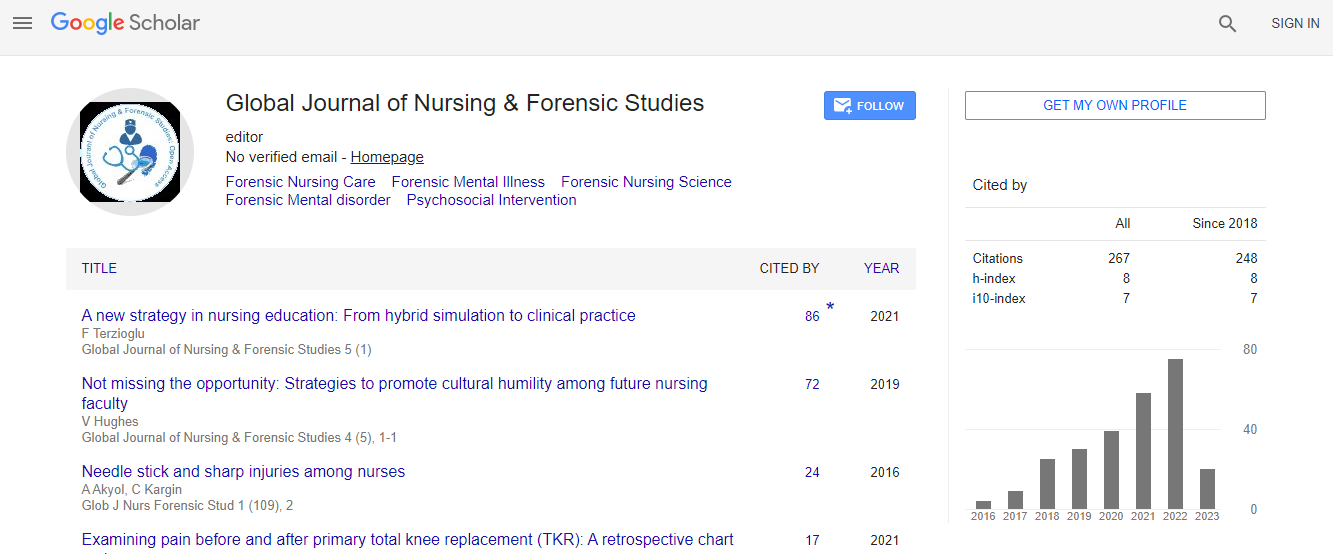Research Article
Effectiveness of Intelligence-Led Policing in the Management of Domestic Crimes in Kenya, A Case of Kakamega County
Julius Harambee Mabia1*, Crispinous Iteyo2 and Edmond Were3
1Department of Conflict Resolution and Management, Masinde Muliro University of Science and Technology, Kenya
2Department of Peace and Conflict Studies, Masinde Muliro University of Science and Technology, Kenya
3Department of Social Sciences, Kisii University, Kenya
- *Corresponding Author:
- Julius Harambee Mabia
Department of Conflict Resolution and Management
MMUST, Kenya
Tel: +254 790 526395
E-mail: hmabia@mmust.ac.ke
Received Date: November 10, 2016; Accepted Date: November 20, 2016; Published Date: November 28, 2016
Citation: Mabia JH, Iteyo C, Were E (2016) Effectiveness of Intelligence-Led Policing in the Management of Domestic Crimes in Kenya, A Case of Kakamega County. Glob J Nurs Forensic Stud 1: 111. doi: 10.4172/2572-0899.1000111
Copyright: © 2016 Mabia JH, et al. This is an open-access article distributed under the terms of the Creative Commons Attribution License, which permits unrestricted use, distribution and reproduction in any medium, provided the original author and source are credited.
Abstract
In Kenya, domestic crimes increase has not been met with adequate prevention involving Intelligence-Led Policing unlike other kind of crime such as drug trafficking and terrorism where intelligence policing has been deployed immensely. Kakamega County has recorded an increasing number of domestic crimes in the past decade (Kakamega County Police Headquarters, 2014) which threatens socio-economic development in the County. The overall objective of the study was to examine the practice of intelligence led policing with a particular focus on the management of domestic crimes in Kakamega County. The specific objectives were to: examine the nature of intelligence led policing, assess the effectiveness of intelligence-led policing in the management of domestic crimes, and determine the challenges that intelligence-led policing encounter. The study was guided by rational choice and social control theories. The study employed a descriptive survey design and the target population consisted of household heads, police officers, private security firms, chiefs and assistant county commissioners in Kakamega County. Purposively sampling techniques was used to select OCPD, DCIO, OCS, private security firms, assistant county commissioners, chiefs while random sampling technique was used to select junior police officers and household heads. In the total, the sample respondents were 293. Primary data was collected through interviews, questionnaires while secondary data was collected from books, internet, journals and newspapers. Validity was determined using content validity while reliability was done using test retest method. Data was analysed using descriptive and inferential statistic and it was presented in form of tables and charts. The findings revealed that Intelligence-Led Policing in Kakamega County was characterized by criminal informer, targeting of criminals unlike particular crime and holistic investigation of crimes using results-oriented tactics and strategies. The study recommends that government needs to commit more resources toward Intelligence-Led Policing so that police officers can be trained, equipment and technology can be procured. Further, there is need for police officers to come up with realistic performance indicator through the use of Intelligence-Led Policing products.

 Spanish
Spanish  Chinese
Chinese  Russian
Russian  German
German  French
French  Japanese
Japanese  Portuguese
Portuguese  Hindi
Hindi 